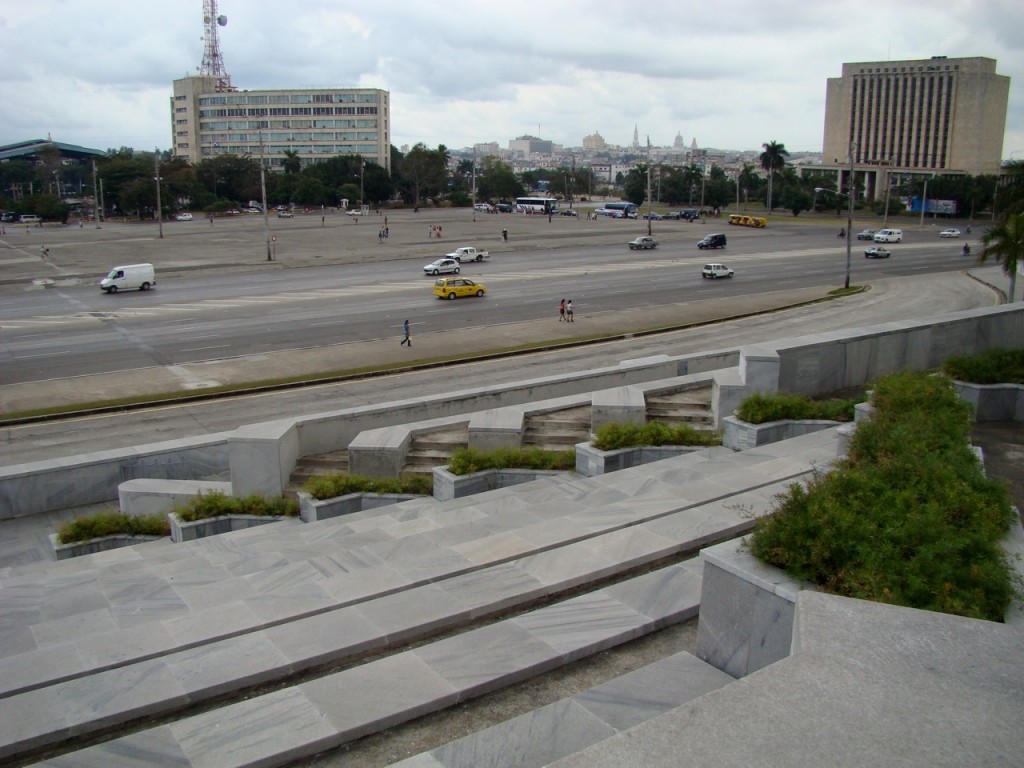
Muammar al-Qaddafi suffers his death throes in front of a tiny cell phone camera. Seeing him helpless, babbling, moves us to pity. Later we are told he died from bullets shot at the convoy in which he was escaping, and from the uncontrolled rage of his captors. In Libya, the chapter of a 42-year personal mandate seems to be coming to an end, but despots have the ability to extend their presence far beyond their own lifespans. When an autocrat has been in power for such a long time, it is inevitable that in his absence we’re overcome by a mix of relief and emptiness.
One of the most widespread practices of those addicted to power it so try to link their own name to the idea of homeland, their ideology to the culture of their country, their ruling party to the idea of national identity itself. As a result, those of us who live under one of these prolonged and authoritarian regimes come to believe that there will be no life for us, no future after the messianic leader closes his eyes. Dictators infect us with a pessimism towards the future, they tie us to the ancestry of an oppressive father, so much so that on his death we feel orphaned.
Not only Libyans have watched, over and over, that short video of Qaddafi’s last moments. On this side of the Atlantic, millions of curious eyes have also stared at the scene. In several Latin American presidential palaces it is likely that the death throes of this autocrat have been observed with special attention. We can’t forget that we live in countries repeatedly fascinated, and cheated, by caudillos.
In Havana’s Plaza of the Revolution, for example, the fall of this important ally in North Africa has no doubt generated worry and uncertainty, but also great fear. Lately, all across the country, one of the most popular refrains warns, “When you see your neighbor’s fence on fire, turn the hose on your own.” Many, riveted by this phrase, toss it out to others like an easy-to-crack puzzle, because we all understand exactly what is implied. Watching the fall of dictators, one after another, thousands of miles away, we can only reflect on the sequel such a process could generate on our own island. People want to believe that this “domino effect” will lead to the end of all autocracies, and that our own island will not be left at the margins of this anti-totalitarian shockwave.
But it is not only ordinary citizens who are analyzing what happened in Surt, our rulers are also drawing their own lessons. From the beginning of the uprisings in Tunisia, with their subsequent spread to Egypt and Libya, police actions in Cuba have increased. Raul Castro’s government knows very well that it cannot allow demonstrations by thousands of people in the streets, demonstrations that would have to be met by anti-riot police. So he has chosen to respond with “prophylactic” repression, which barely leaves visible traces, much less legal ones.
Among the most-used methods is to prevent activists from leaving their homes on significant dates, and so to avoid their taking part in opposition events. State Security operates in plain clothes from cars with civilian plates so that no camera or foreign correspondent will film uniformed police restricting the freedom of an individual.
The financial costs of increased wiretapping, monitoring dissident leaders, surrounding their houses with operatives, must be rising to numbers that haunt the budgets of certain ministries. The priority now is to avoid allowing the counter-hegemonic winds of contagion to blow from North Africa over the largest island of the Antilles. In the bloodied face of Muammar al-Qaddafi our authorities have seen a prophetic sign of their possible fate, and now they are trying to shield themselves to ward off a similar outcome.
In a calculated strategy they mix greater vigilance over the citizenry with promises of reforms and openings. Cubans must be made to believe that changes are just around the corner, in the hopes they will abandon any thoughts of revolt, any possible ideas of turning to street protests. It’s the old and hackneyed political ploy of the carrot and the stick, only here, every time our mouths begin to close on the desired vegetable it is pulled away while the stick sinks more deeply into our ribs, hidden under the cloak of supposed popular acceptance.
Notwithstanding the enormous social and geographic differences between Libya and Cuba, Qaddafi’s violent death has undoubtedly focused Raul Castro’s fears. The General knows that a cheering crowd in a square can quickly become a mob, ready to lynch the leaders they obeyed only the day before. Just as he knows what desires for revenge are provoked by years and years of dissatisfaction, of the suffocation of free expression.
So now, even the slightest detail that led to the fall of the Libyan despot, to his death at the hands of his domestic opponents, must be analyzed. To avoid this end, the regime is capable of increasing repression to unimaginable levels, and spending everything it has, and more, on control. But the big question that we ask, is whether, to avoid ending up like Qaddafi, it is willing to undertake a genuine transition, a change that could save them and save us.
25 October 2011
